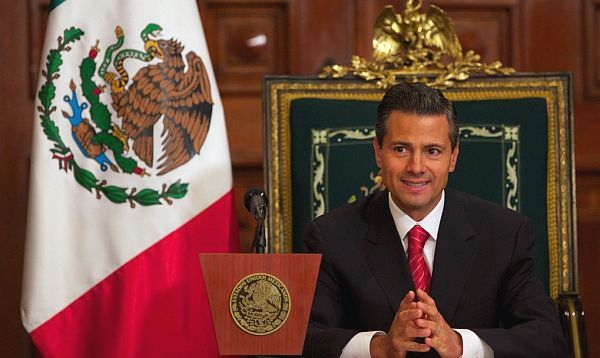While most media headlines regarding the impact of Mexico among world nations seems to dwell on such negatives as drug gang wars, climatic disasters, and immigration problems, America’s southern neighbor, and partner in the North American Free Trade Authority (NAFTA) is reaching economically developed nation status.
With a 120 million strong population, a fast-growing middle class, a rehabilitated oil production complex (PEMEX,) and an expanded manufacturing base, Mexico has caught attention where it counts, the world’s leading credit analysts:
1.) Moody’s has recently elevated Mexico to A3 status from BAA1. Only Chile has reached that exalted elevation in Latin America.
2.) Standard & Poor’s, which was roundly criticized for lowering the United States’ standing because of its debt problems a few year ago, moved Mexico up to BBB+ in recognition of that nation’s impressive economic progress.
While the US's often-maligned southern neighbor has always had the potential for economic dynamism - a) natural resource abundance; b) an active working class within a 100 million plus population, and c) a growing trillion dollar gross domestic product of goods and services - it took the year old presidency of a young, Kennedy-esque and former television communicator, Enrique Peña Nieto’s Administration to put Mexico’s underlying economic strength into high gear.
Nieto has initiated unexpected growth accomplishments by the concentrated awakening of Mexico’s dominant industry sector, and bringing it up to standards suitable for major export dynamics. He has partially done this by opening the doors of PEMEX to foreign investments, thereby overcoming Mexico’s early 1940's ultra-nationalism, which had since witnessed the slow deterioration of a potential leading global oil giant.
Nieto’s Administration has already taken a giant forward step by signing the "Tequila Agreement" with China, a bilateral commerce contract, aimed at leveling the quantity of exports and imports with the Asian behemoth - with Mexico reaping a heavily favorable balance in the import/export equation. Mexico has also greatly benefitted by the rapid upgrading of its industrial quality and quantity.
In this, Mexico has been greatly rewarded in intensifying its exports to the United States by its cost effectiveness and greater servicing capability to the US. This has happened at a time when growing US economic requirements have created shortened demand time periods, which America’s southern neighbor is much more able to requite than China or other global suppliers.
Mexico has also closed its global cost margin because of higher labor rates overseas, and the need for major domestic US inventories. President Nieto’s policies continue an even more favorable approach and enlargement for US "Maquiladoras," which allow tax and duty-free manufacturing havens for industrial products strictly directed toward US markets.
Last, but not least, it puts to rest the confrontational dialogue of the immigration problem, as Mexican job opportunities have created a net reversal of "illegal immigrants" into this country for the past decades, due to lack of job opportunities in Mexico. Most of all, these favorable circumstances south of the border have given NAFTA two dynamic US neighbors, who are already making this pact, passed in 1993, a poster child of how regional trade pacts can really be made to work for the global benefit.
Original Story


